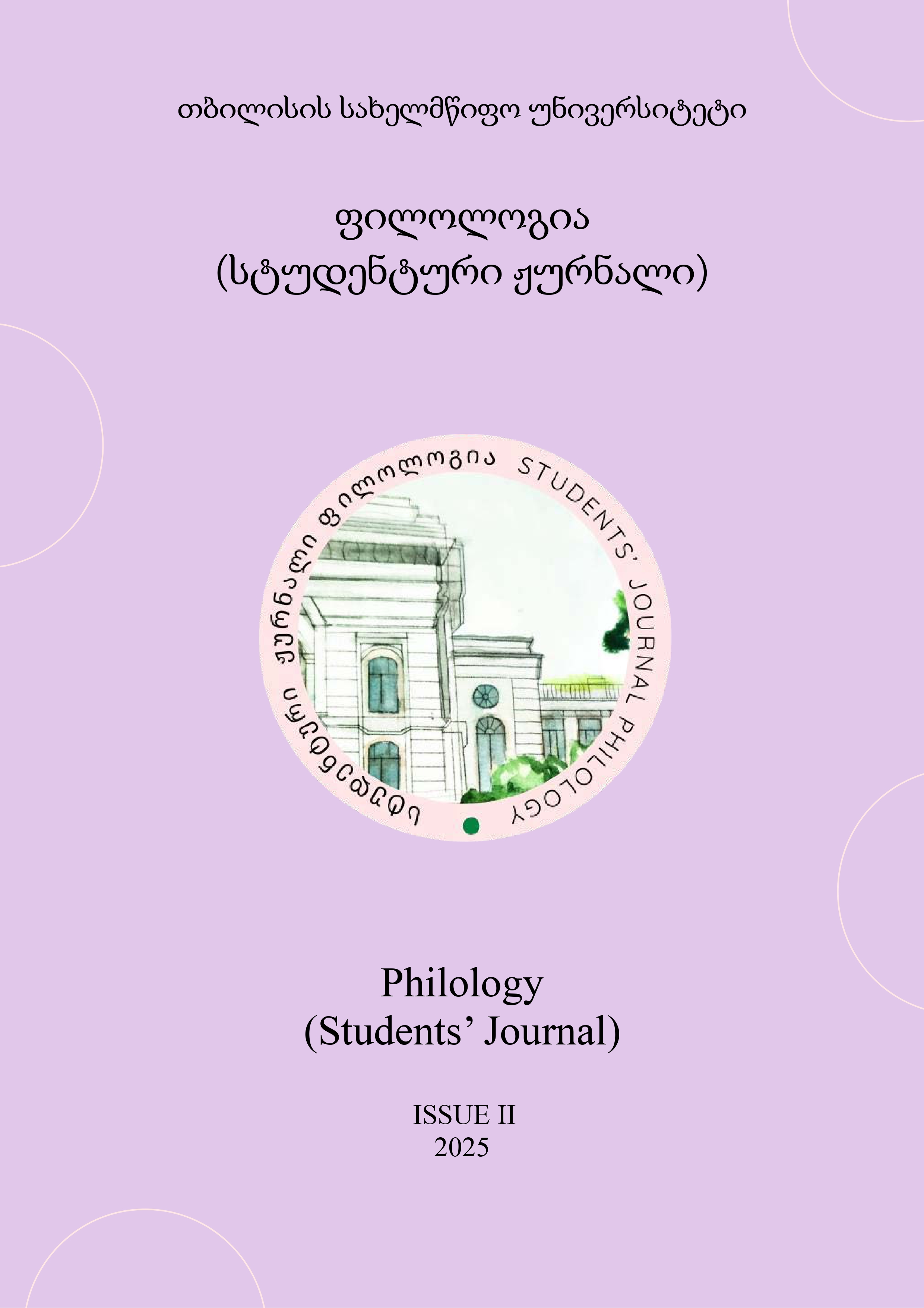Love and Illusion in Iris Murdoch’s novel “The Black Prince”
Keywords:
Illusion, Love, Art, Ego, MoralityAbstract
Iris Murdoch’s The Black Prince is a novel where love becomes an illusion. For the characters, love is not an act of empathy or moral connection, but rather a projection of personal desire, insecurity, and fantasy. Murdoch shows how both art and love act as mirrors through which people try to see themselves, yet ultimately remain blind to their true inner selves. However, truth is no longer a shared reality.
The novel’s intricate narrative structure, framed by forewords and post-scripts, challenges the trustworthiness of any single perspective. As a result, the reader is cast in the role of a detective without proof, who must look beyond the author’s web of narration and explore the inner worlds of the characters to uncover the real truth. Murdoch presents the uncertainty of truth not just as a storytelling device, but as a deep ethical issue.
Through this research, it was found that Murdoch deliberately dissolves the lines between reality and illusion, both in art and human relationships. Her characters use fantasy to escape moral responsibility, often hiding behind ideals while making decisions motivated by ego and fear. The novel ultimately shows how moral failure arises from the inability to see beyond oneself. In The Black Prince, illusion is not just a theme - it is the very basis through which love, art, and even identity are experienced.
References
Antonaccio, M. (2000). Picturing the Human: The Moral Thought of Iris Murdoch. Oxford University Press.
Antonaccio, M. (2012). A Philosophy to Live By: Engaging Iris Murdoch. Oxford University Press.
Murdoch, I. (2003). The Black Prince. Penguin Classics.
Murdoch, I. (2014). The Sovereignty of Good. Routledge.
Sartre, J.-P. (2007). Existentialism is a humanism.
Verma, R. (2021). Critique of Modern Moral Philosophy in Iris Murdoch’s Novels: A Philosophical and Literary Exploration. International Journal of Creative Research Thoughts (IJCRT).


